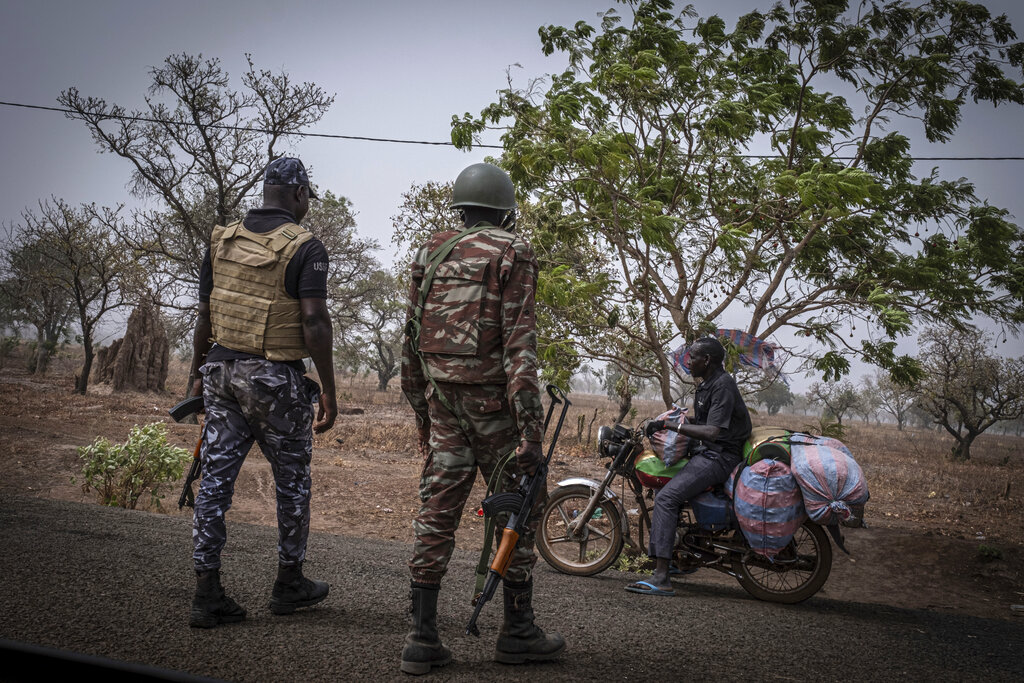ADF STAFF
Until November 2021, Benin had been spared from the kind of extremist violence that has ravaged its neighbor to the north, Burkina Faso.
Since then, Arnaud Houenou has witnessed a change in the attitudes of his fellow Beninese.
The national security expert, who works as professor at Benin’s University of Abomey Calavi, said fear is now prevalent.
“We thought for a moment, perhaps because of a certain naiveté … that [we] could escape the situation of threats, of near-daily attacks,” he told The Associated Press.
“But reality has set in.”
Principally two Islamist terror groups — the Islamic State of the Greater Sahel and al-Qaida linked Jama’at Nusrat al-Islam wal-Muslimin — have operated in the Sahel for more than seven years, killing thousands and displacing millions.
Now they’re attempting to spread violence south to the coastal states along the Gulf of Guinea.
Benin has been hit the hardest, especially in the second half of 2022.
The country saw an increase of more than 10 times the number of attacks — from 2 to 25 — between July and December 2022 compared to the same period in 2021, according to the Armed Conflict Location & Event Data project (ACLED).
Despite a military buildup, the battlefield is expanding.
Attacks were previously limited to Benin’s northern border with Burkina Faso as well as vast tracts of national parks where terrorists are able to hide, organize and stage attacks.
Since June 2022, however, militants increasingly have attacked populated areas around the parks.
“Jihadist presence within protected reserves is one of the most acute threats that civilians currently face,” ACLED reported in December. “These groups target local communities, especially pastoralist ones, in their efforts to further entrench their power and control over these sparsely populated areas.”
In a December 8 state of the nation speech, Beninese President Patrice Talon said the military response in 2022 included more than $130 million to recruit nearly 4,000 security personnel, modernize equipment and begin fortifying bases, while building 10 operating bases and “several dozen” fortified positions.
“Our country must also take up the security challenge,” he said, vowing to intensify the military efforts in the years to come.
Although the military has sent large numbers of troops to the north to work with park rangers to stem the tide of extremist violence, Houenou said the government must do more.
“We couldn’t have imagined that this situation could degenerate and expand to the point of spilling over to the coastal borders,” he told Voice of America. “Unfortunately, that is what is happening.”

